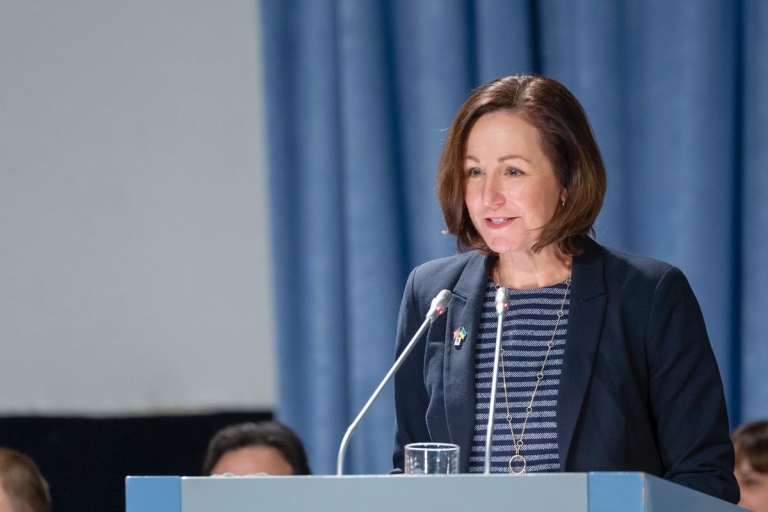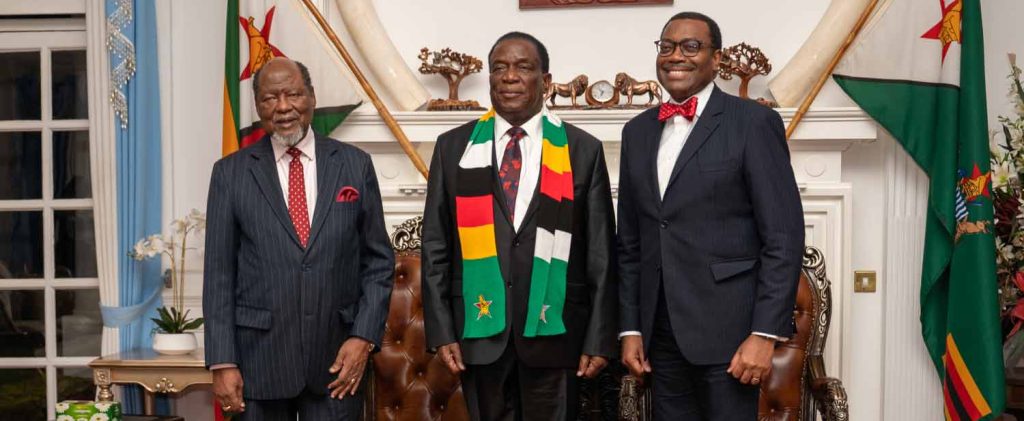The United States has called on Zimbabwe to implement sweeping political and financial reforms, a move seen as pivotal for restoring the nation’s economic vitality and global standing. U.S. Ambassador to Zimbabwe, Pamela Tremont, delivered the firm message during a press briefing in Harare on Monday, underscoring the urgency for transparency and accountability within Zimbabwe’s leadership.

“We are here today as part of our longstanding and consistent commitment to the people of Zimbabwe,” Tremont stated. “Public officials must stop using their positions for personal gain, and the judiciary must deliver justice free from political interference. The respect for rights to assembly and free speech is non-negotiable.”
A Call for Transparency and Justice
Tremont’s remarks come amid Zimbabwe’s attempts to address its crippling $21 billion national debt, a burden that has plagued the economy for decades. Her call for reforms aligns with the broader international community’s demands for enhanced governance and a corruption-free judiciary.
The U.S. stance signals a heightened diplomatic effort to encourage a transformation that could unlock international financial support, crucial for a nation reeling from years of economic stagnation.
Debt Relief as a Gateway to Prosperity
The debt crisis was a focal point of discussions led by Akinwumi Adesina, President of the African Development Bank Group, who implored global financial institutions to act swiftly.

“Even wars do not last this long,” Adesina said, in a candid appeal. “It is time to end decades of economic damage and suffering and usher in a new era of hope and shared prosperity for the people of Zimbabwe. It is time to make Zimbabwe beautiful again.”
Adesina described Zimbabwe’s debt as a “mountain of sandbags” crushing the nation’s progress, stressing the need for debt restructuring or forgiveness from institutions like the World Bank and the International Monetary Fund. His plea highlighted the importance of freeing Zimbabwe from its financial quagmire to enable future investments and growth.
Mnangagwa’s Strategic Plea for Support
Zimbabwean President Emmerson Mnangagwa also weighed in, emphasizing that debt resolution is crucial to unlocking credit lines and driving economic recovery.
“The successful implementation of our arrears clearance and debt resolution strategy is critical to achieving our economic development objectives,” Mnangagwa remarked. “I urge international financial institutions, development partners, and creditors to support this process. Access to external financing is vital for funding our long-term projects and programmes.”
Don’t miss:
Sex, Power, and Cameras: When Public Office Gets Too Personal
“Do You Know Who I Am?” – The Art of Nigerian ‘Bigmanism’ and its Everyday Performers
The Nigerian Japa Syndrome: Myths and Truths (I)
The Things-Fall-Apart-Okonkwo Debate: Can Idris Elba Roll Fufu?
Historical Burden and Sanctions Debate
Zimbabwe’s debt crisis traces back to the early 2000s when controversial land reforms decimated agricultural productivity, leading to economic turmoil. Compounding the issue, Western nations imposed targeted sanctions on political leaders accused of electoral fraud and human rights abuses, further isolating Zimbabwe from global credit markets.
While some officials argue that sanctions are at the core of Zimbabwe’s financial woes, international observers point to systemic corruption, governance failures, and political repression as the primary barriers to recovery.





